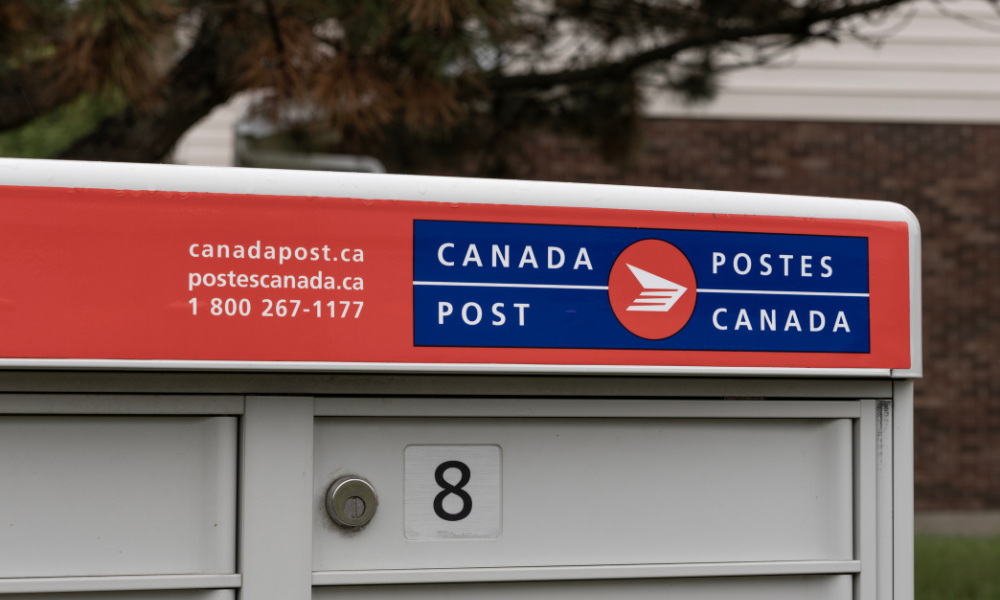
'This pause in mediation activities will hopefully permit the parties to reassess their positions and return to the bargaining table with renewed resolve'

Negotiations between Canada Post and the Canadian Union of Postal Workers (CUPW) have reached a stalemate, and the special federal mediator has decided to temporarily suspend mediation, according to the government.
“After several intensive days of negotiation, his assessment is that parties remain too far apart on critical issues for mediation to be successful at this time,” said Steven MacKinnon, minister of labour, via social media platform X.
“This pause in mediation activities will hopefully permit the parties to reassess their positions and return to the bargaining table with renewed resolve.”
MacKinnon also called both parties to his office on Wednesday to remind them that “in all disputes, they alone are responsible for the consequences of this conflict, and for its resolution”.
The special mediator will re-engage the parties “as soon as productive bargaining can begin anew”.
CUPW has been on strike since mid-November.
"Our goal has always been to reach negotiated collective agreements that support the long-term success of our public post office, while addressing the real issues our members face daily," said Jan Simpson, CUPW national president, back then. "Canada Post has the ability to make that happen without any job action, but it needs to come to the bargaining table and resolve both new and longstanding issues."
Yesterday, CUPW called on its members and labour allies to join a rally at Canada Post head office in Ottawa “to send a strong message to the corporation to get back to the bargaining table and start negotiating real solutions to our problems”.
“For almost two weeks, the Canadian Union of Postal Workers (CUPW) has been on strike against Canada Post fighting for fair wages, safe working conditions, the right for all workers to retire with dignity, and the expansion of public postal services for all communities. But rather than make an effort to bargain good collective agreements that meet the needs of postal workers and the public, Canada Post has dug in its heels,” said the union.
“Canada Post refuses to drop its proposed rollbacks that will create a second class of worker and undermine good, full-time jobs. As a Crown Corporation, Canada Post needs to lead by example, not engage in a race to the bottom with multinational corporate giants.”
Hundreds of Canadian correctional officers in different parts of the country rallied in front of the regional headquarters of Correctional Services Canada (CSC) to ask for better contacts from their employer.
This comes after, on Tuesday, Canada Post accused the union of opting not to cooperate in the talks with the company.
“Canada Post has put forward detailed proposals to bring more flexibility to its outdated, mail-based delivery model. These changes are necessary to better compete in the parcel business, better serve Canadians, and drive much-needed revenue growth,” said the Crown corporation.
“However, after not responding over the past several days, CUPW has just informed us, through the special mediator, that it will not be responding at all.”
The employer claimed that it has “consistently put forward proposals that are critical for the future of the postal service” while protecting current employees.
“Our proposals would add a greater mix of part-time and full-time employees to our delivery model to respond to the daily variations in parcel volumes and provide weekend delivery,” said Canada Post.
“Today, approximately 95% of our delivery team is made up of full-time employees. Our approach would create new regular, permanent part-time jobs, providing greater opportunities for temporary employees to become permanent, with guaranteed hours, schedules and eligibility for health and pension benefits.”
Previously, MacKinnon announced his decision to intervene in the port strikes affecting both Vancouver and Montreal, directing the Canada Industrial Relations Board (CIRB) to order a full resumption of operations at the ports and shift negotiations into binding arbitration.
However, the union claimed that many of Canada Post's proposals are “directly aimed toward a race-to-the-bottom competition with multinational corporations”.
“Their proposals have included attacks on full-time work where they want to increase the part-time mix to more than 50% of the workforce when they have over 5,000 part-time and over 12,500 temporary employees now,” said the union.
“Some of these part-timers would end up being scheduled as few as 8 hours per week. They wouldn’t be eligible for any benefits until they reach 1,000 hours, which could take as long as two and a half years. This is not an increase in the mix, it is a full-on assault on good-paying, full-time jobs.”